"The total land area of the Falklands is about two thirds the size of wales. The two main islands are pretty big, about the same size each, then there must be a few hundred smaller islands around but only around eight or ten of them are populated. Maybe two or three couples at most live on each of the smaller islands, nearly all of them are sheep farmers but many are also doing more touristy things now. Some of them are now mainly places that tourists go to and pay to stay in a lodge and photograph penguins; they are not always accessible to locals because it's quite expensive. When we tell people in Stanley that we are visiting other islands, they don't realise we're taking our tents and doing it on the cheap. East Falkland has Stanley, which is the capital with about two and a half thousand people: thats around 90% of the population.You can cross stanley in 10 minutes."
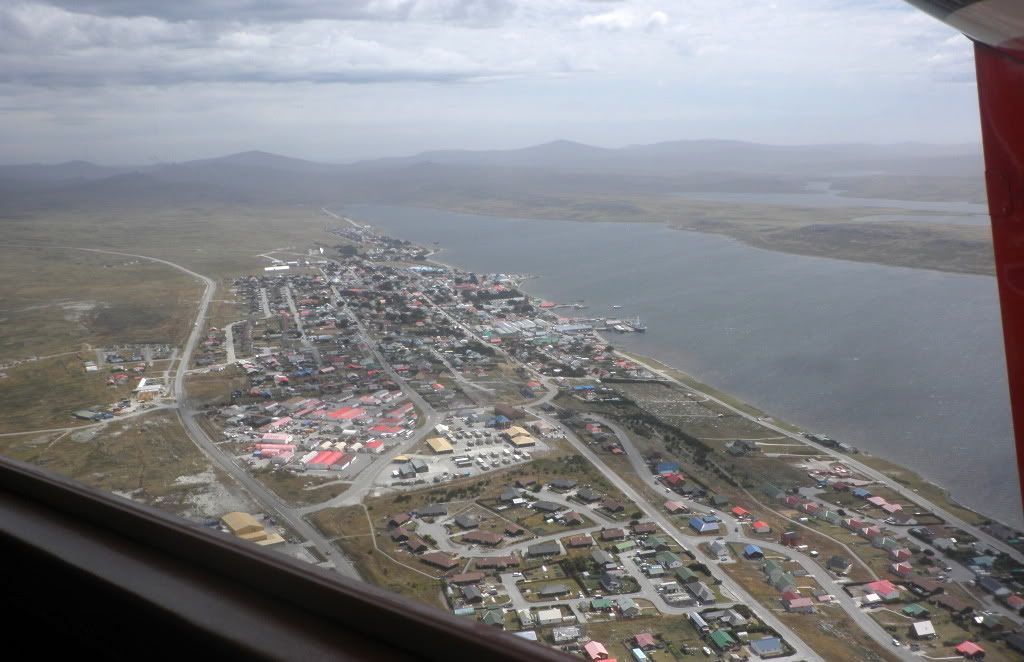
Stanley from the Air
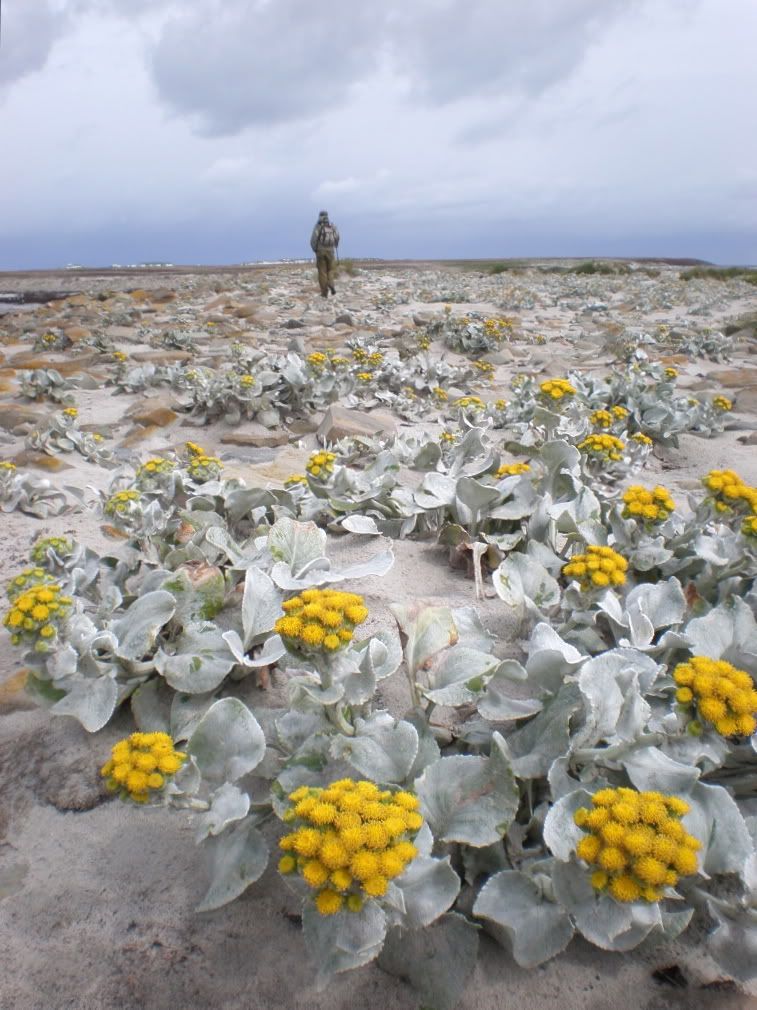 Sea cabbage, Sea Lion Island
Sea cabbage, Sea Lion Island
"West
Because it's an island so you've got to be completely self sufficient, if something goes wrong you've got to fix it yourself. If your generator breaks down you just have to mend it, you don't call somebody in. A lot of people have wind-powered generators but others have an oil generator backup as well.
The countryside around the settlements is so beautiful . . . then you come over the brow of a hill and see: the dump. Because it's an island anything that goes there stays there. At every settlement there's a place where things get dumped - like old washing machines, fridges, Land Rovers. At some beaches you find all their old crockery. You don't move something that isn't valuable off the island, they've got a lot of space so they just have a place where they dump it."
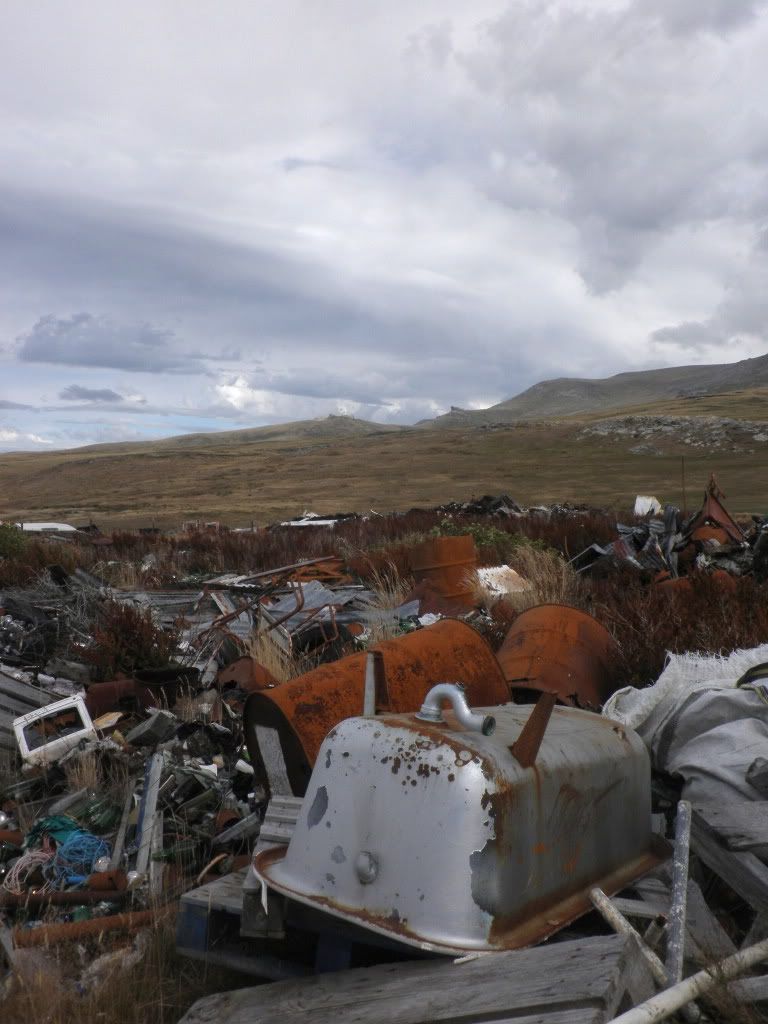 The Dump, Port Howard
The Dump, Port Howard
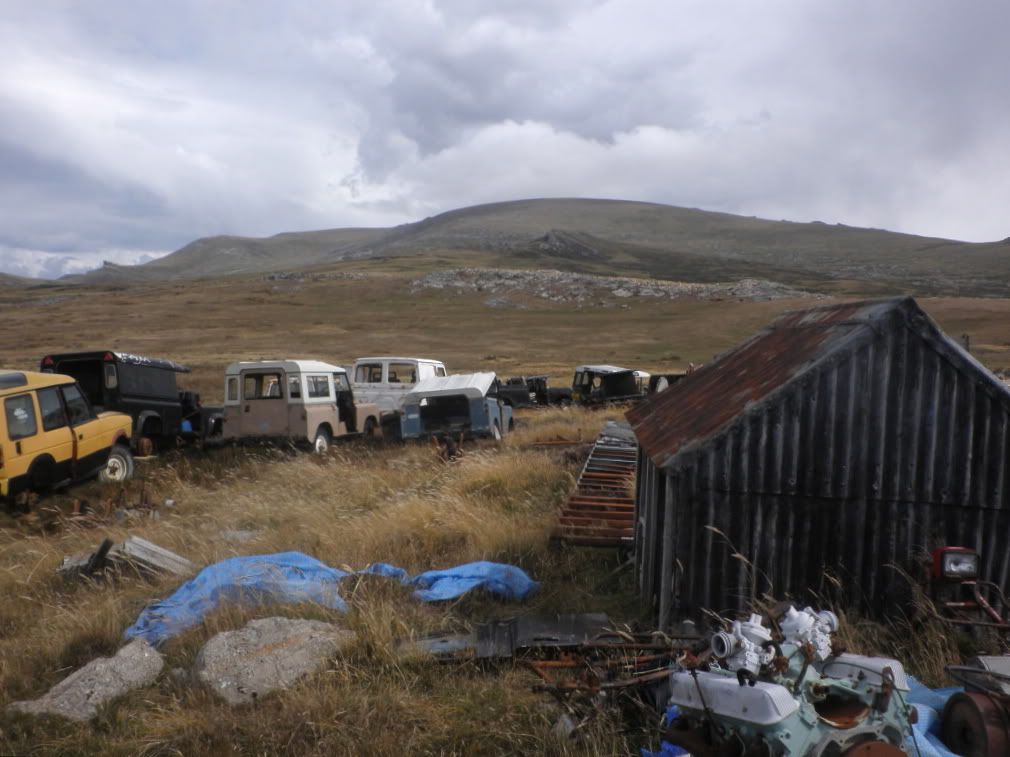 Land Rover recycling at Port Howard.
Land Rover recycling at Port Howard.
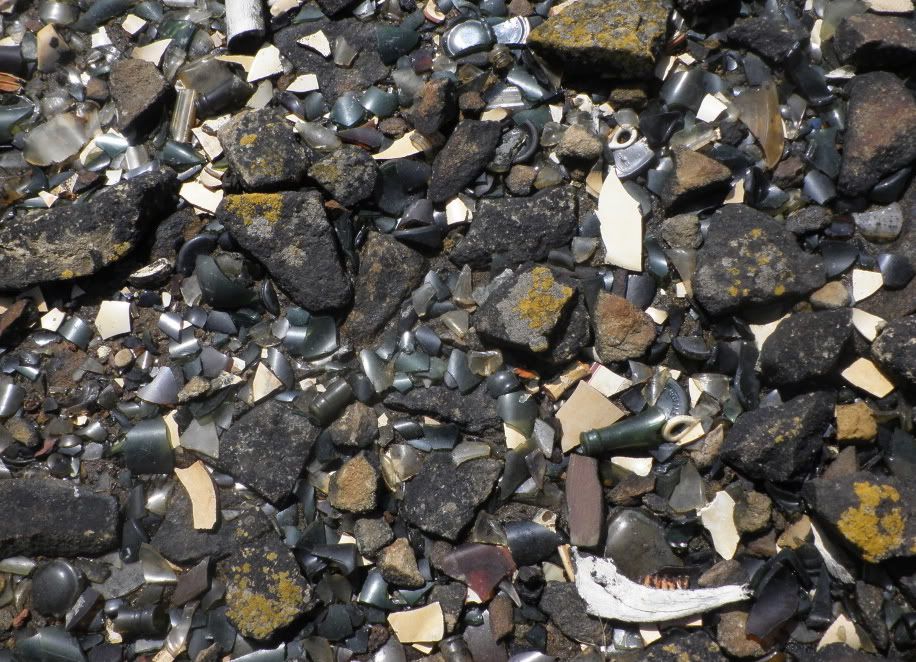 Beach at the settlement, Weddell Island.
Beach at the settlement, Weddell Island.
"The way people view travelling is very different. Outside of Stanley there are no tarmac roads, it's rough gravel roads and they only go to the inhabited farms, a lot of places have no roads at all. There's no rights of way, no footpaths no bridleways, you have to ask permission to go to private land; which is almost all of it.
Air flight is essential for maintaining communications: you can fit about 8 people in an Islander plane, plus the pilot and lots of cargo, including any mail. Although they are subsidised, it's still too expensive for many people."
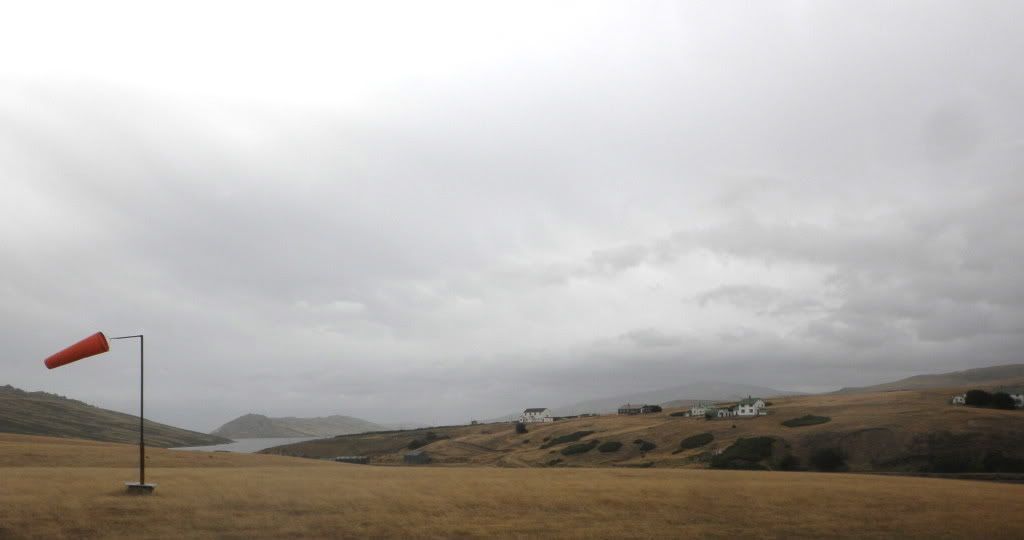 Port Howard Airstrip.
Port Howard Airstrip.
 The Dump, Port Howard
The Dump, Port Howard Land Rover recycling at Port Howard.
Land Rover recycling at Port Howard. Beach at the settlement, Weddell Island.
Beach at the settlement, Weddell Island."The way people view travelling is very different. Outside of Stanley there are no tarmac roads, it's rough gravel roads and they only go to the inhabited farms, a lot of places have no roads at all. There's no rights of way, no footpaths no bridleways, you have to ask permission to go to private land; which is almost all of it.
Air flight is essential for maintaining communications: you can fit about 8 people in an Islander plane, plus the pilot and lots of cargo, including any mail. Although they are subsidised, it's still too expensive for many people."
 Port Howard Airstrip.
Port Howard Airstrip.
A typical Falklands house has gloss painted hardboard walls, some would've been just the wooden boarding or wiggly tin (corrugated iron) boarding before. I remember people telling me that in the past, if you could afford hardboard paneling that was considered posh.
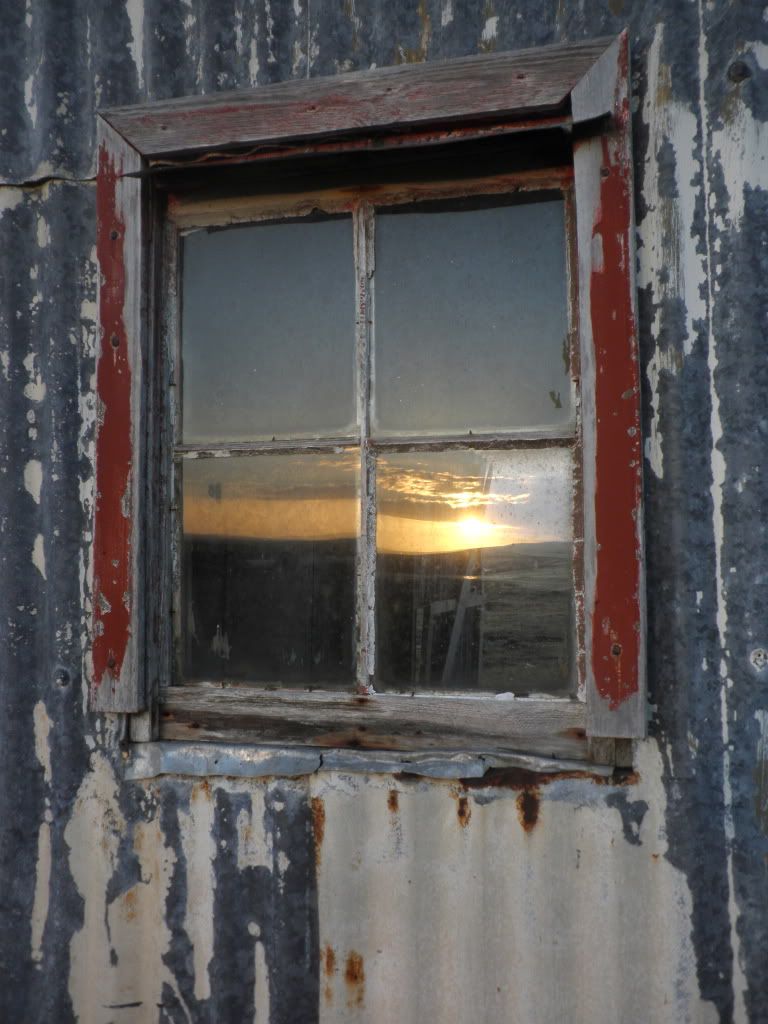 Sunset reflection, Fox Bay East.
Sunset reflection, Fox Bay East.
"The houses can seem old-fashioned, because it's so expensive to get things: if it's not broken you won't get something new. If you've got a pot of paint in the shed you'll use it, whatever the colour, rather than bringing one in because it has to come 8000 miles to get there. They are sometimes quite garish bright colours, we went in one bedroom that was just dazzlingly bright. When you go into some of the houses that aren't still lived in, it's like stepping back in time, I like that. Places that have been done up recently you see that they've been to Ikea- lots of
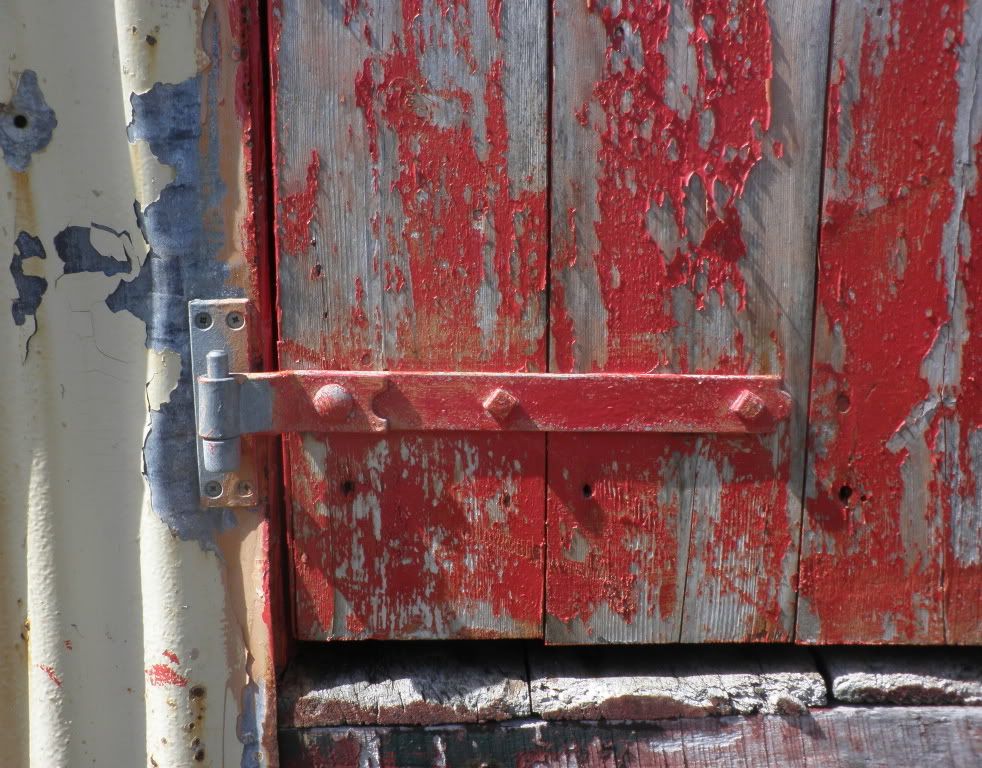 Weathered door, Weddell Island.
Weathered door, Weddell Island.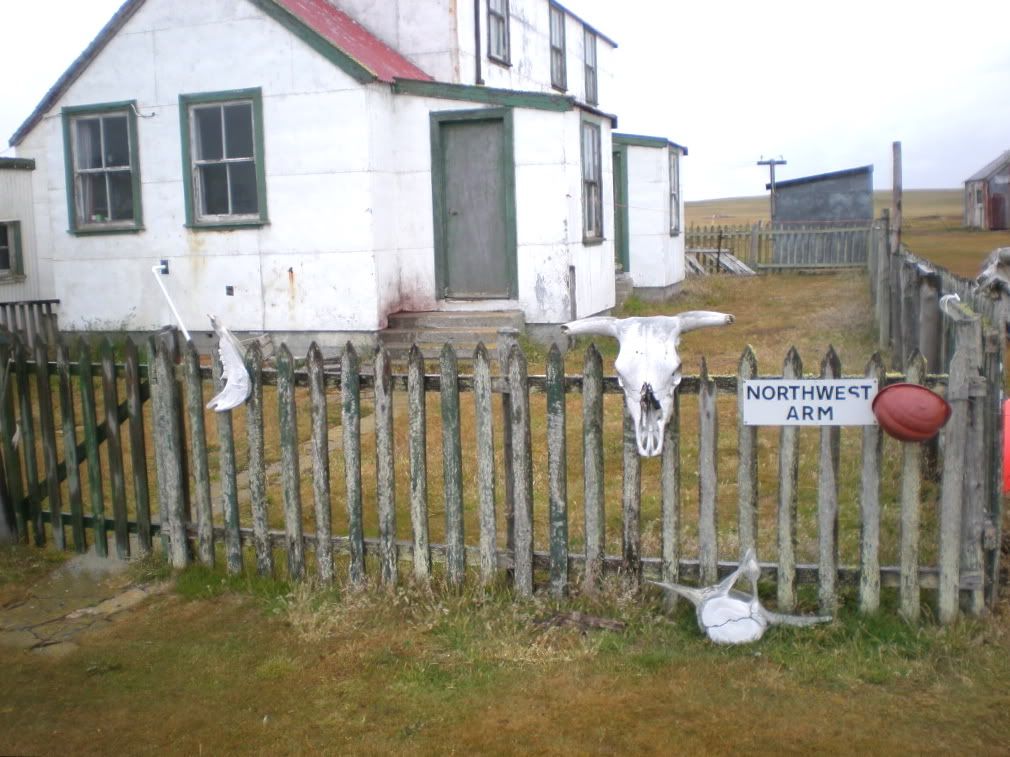 Abandoned Shepherds House, Northwest Arm.
Abandoned Shepherds House, Northwest Arm.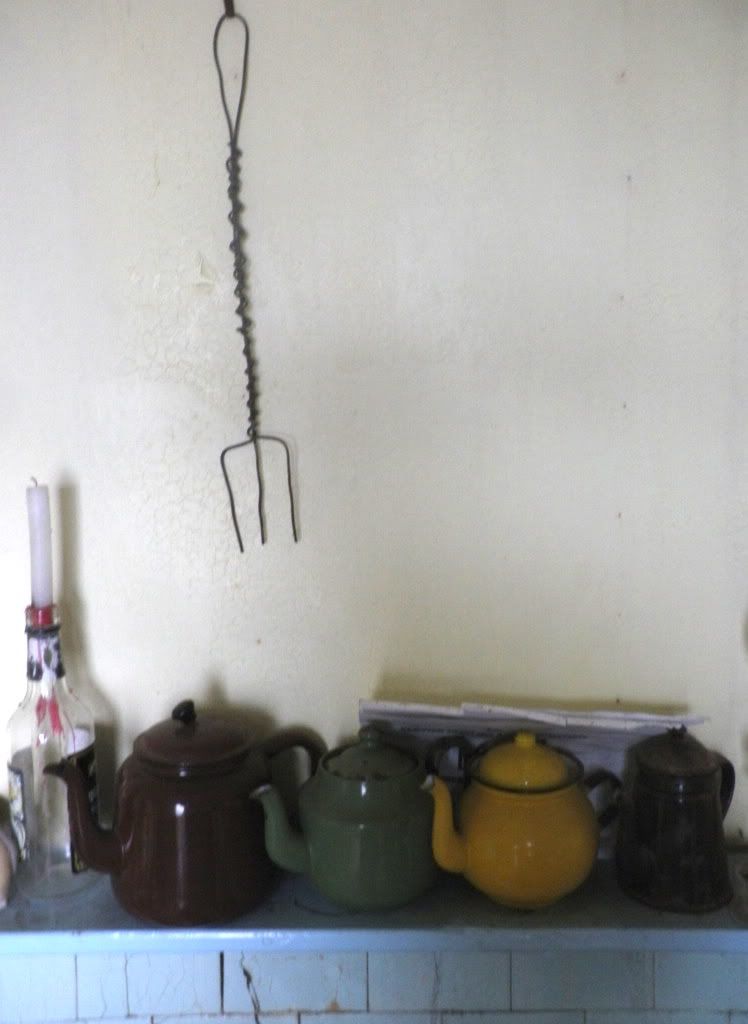 Mantel piece, Purvis House
Mantel piece, Purvis House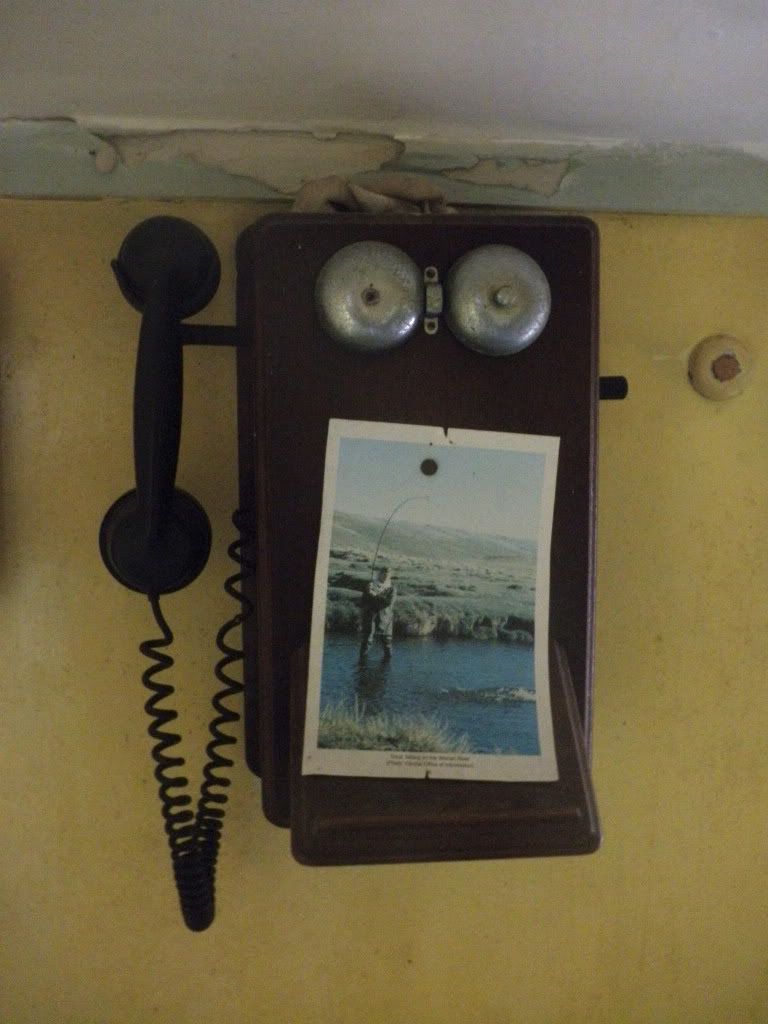 Phone, Purvis House
Phone, Purvis House"Any hardware would come from the UK because the nearest land mass is Argentina and they won't let anything go to the Falklands, they claim the Falklands for their own. Chile is the country in South America where there's most communication, container ships come from there once a month and there's a weekly flight which brings people and also fresh fruit and veg. It
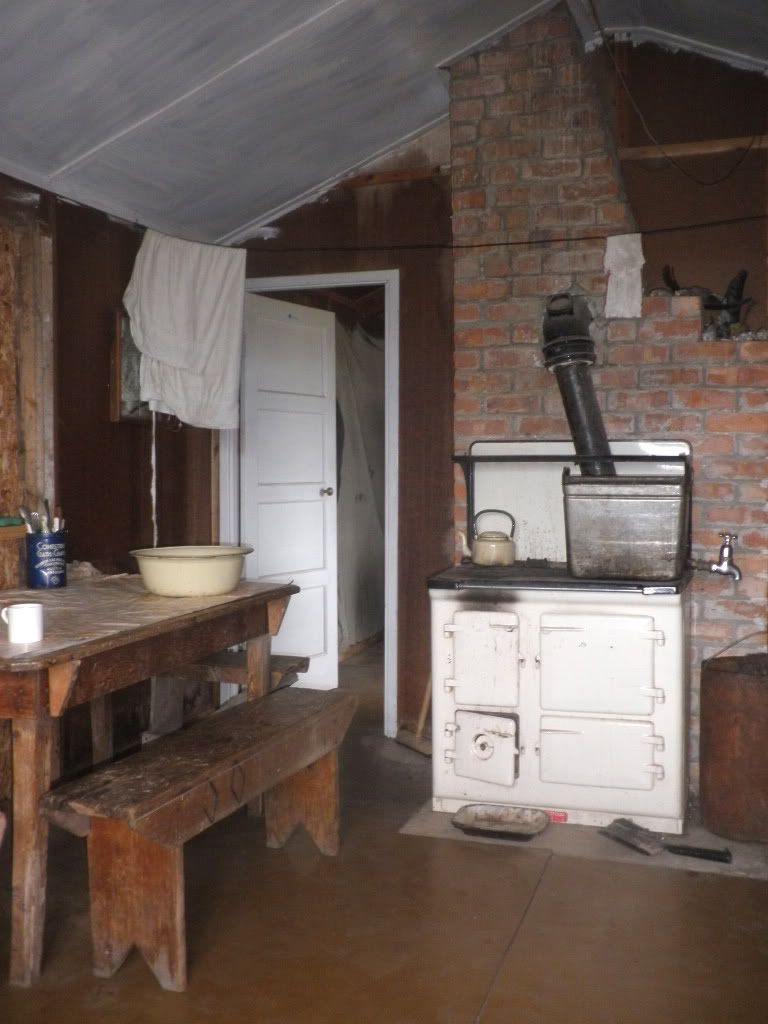
Shanty kitchen, River Island
"We went to River Island and spent a week with the sheep-shearers. The shanty on
That's the fleece they gave me, a black fleece which is worth nothing to them, it's fantastic quality wool compared to the fleeces I get in the UK - very fine. The white wool would be worth a lot of money. All the black sheep are usually killed in the Falklands but for some reason a shepherd had a soft spot for that one, the other shepherds teased him because he didn't kill it. Now Brian's spun it and made a hat which he'll send to him, I think it will be the first thing he's ever had made from his own wool."
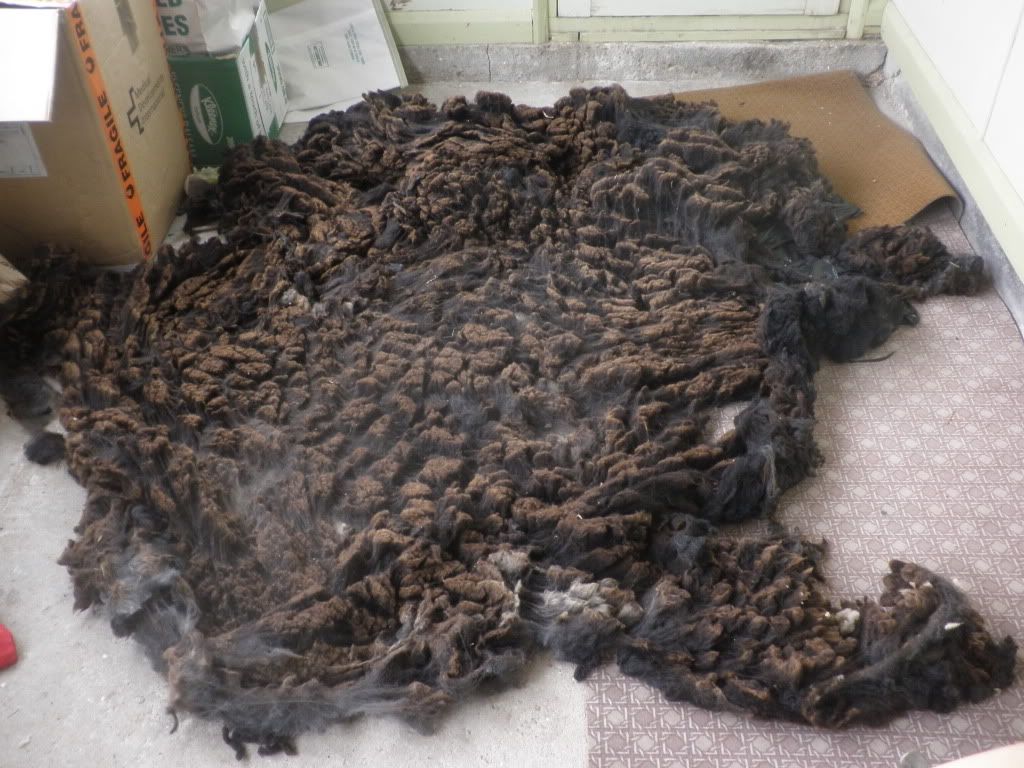 Black fleece from River Island
Black fleece from River Island"The man who runs this farm makes his own horse leather bits - every farmer and shepherd used to make their own gear from their own rawhide - in the time when everyone had horses - but there's very few people who do it now. The range of different parts in saddles and gear is incredible, and it's very different from British horse gear, it's much closer to Spanish gear. I've heard that the first British shepherds down there were from Scotland where it was all done on foot not horseback: so they had no history of working with horses whereas the gauchos coming over from the mainland did, so that's where the horse-riding culture was taken up from. It's hard to overestimate the importance of horses in Falklands life historically: before Land Rovers became available."
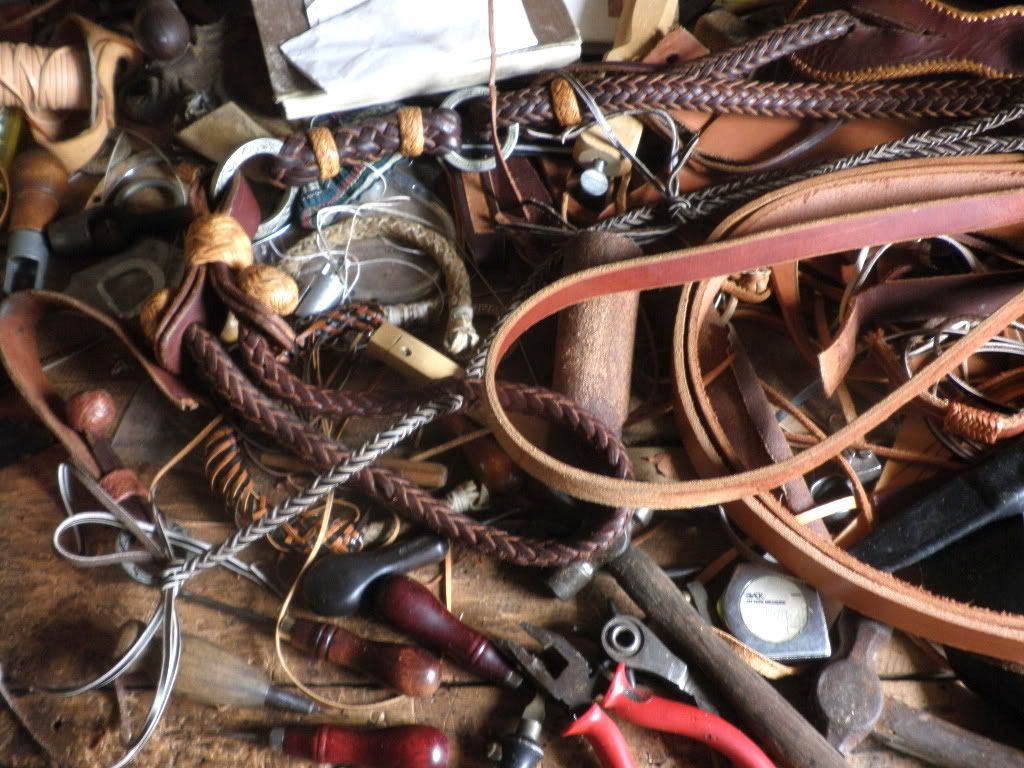
Saddlery workshop, Shallow Bay.
"They've split up the big farms now; but it can still be over an hour to your next neighbour. You can spend a lot of time just in your family unit, rarely seeing anyone else, that must feel very isolating sometimes, especially in winter. Take Saunders Island: a couple run it and their two daughters live there with their partners."
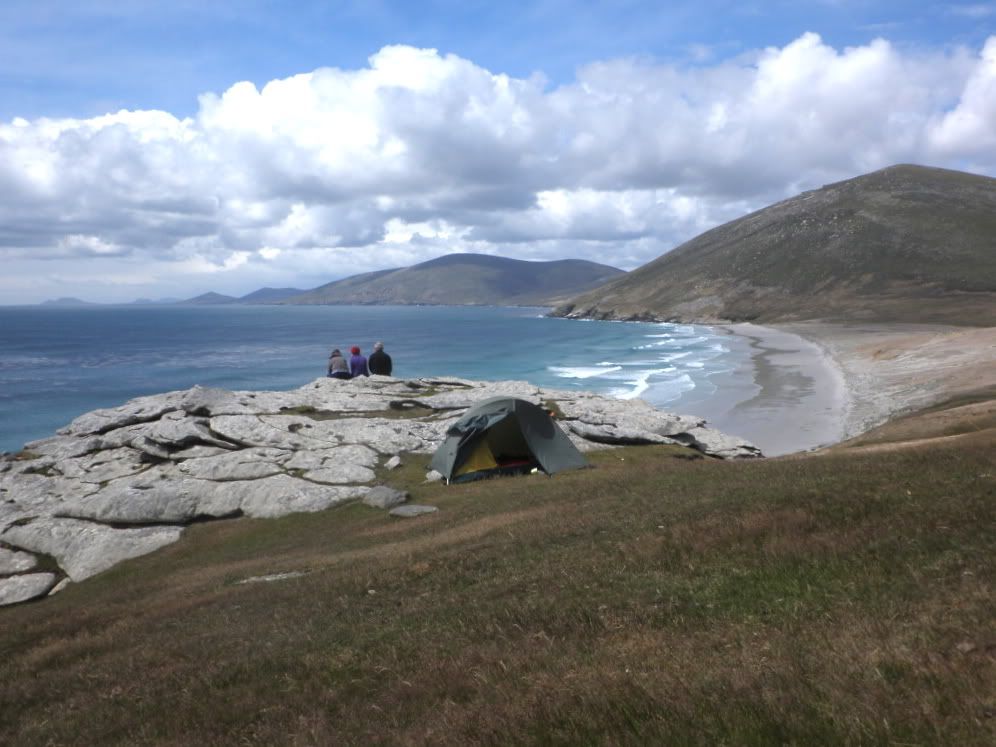
View from “Swiss Cottage” at the Neck, Saunders Island.
"They run Saunders mainly for sheep farming but have been expanding into tourism because they've got penguin and albatross colonies, throughout the summer it's full of tourists coming and going, but in the winter, there is sometimes only the family."
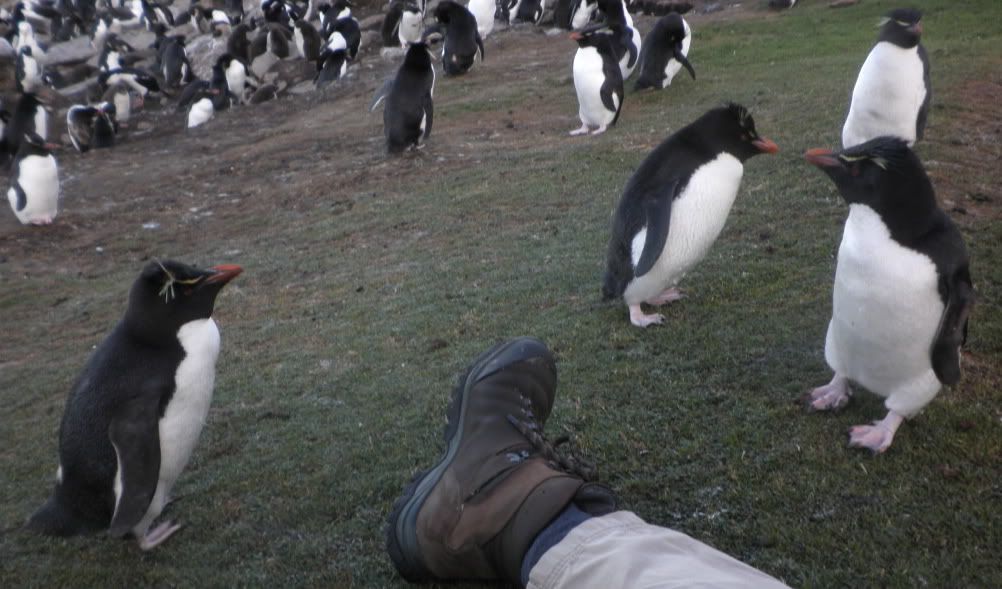
Rockhopper Colony, Saunders Island.
"Some Islanders have a license to collect penguin eggs to eat. On Weddell Island, there are several colonies. Any island community has some level of eating seabirds, Easter Island, St Kilda etc. On the Falklands there doesn't seem to be any record of people eating the penguins themselves so I presume they must be really unpleasant to eat. They gave us a couple of penguin eggs to try, they have really very hard shells, almost too thick to get through and they're about the size of tennis balls. They taste horrible, really fishy, really oily, just disgusting."
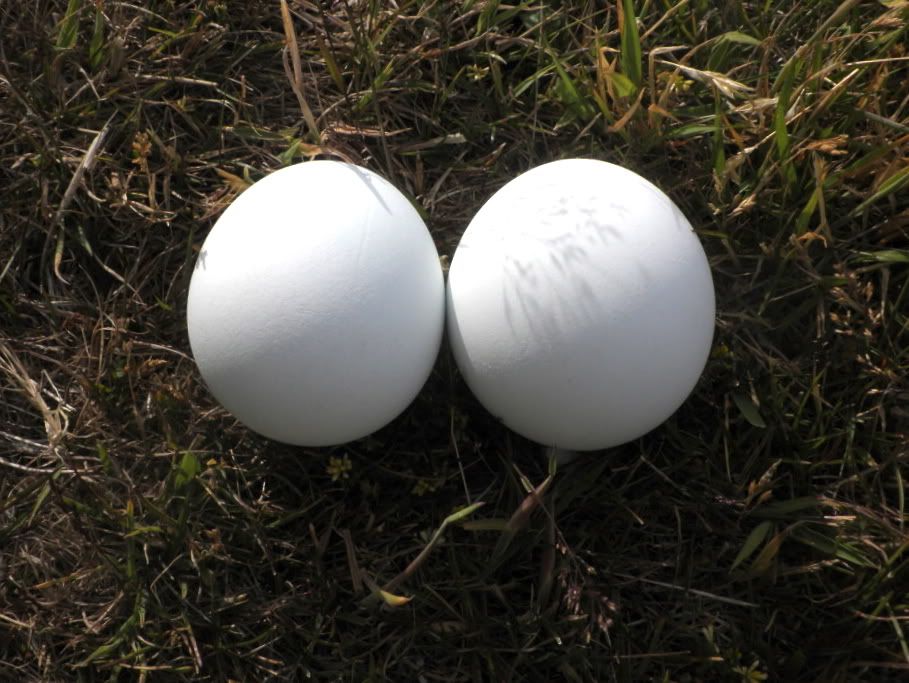 Penguin eggs
Penguin eggs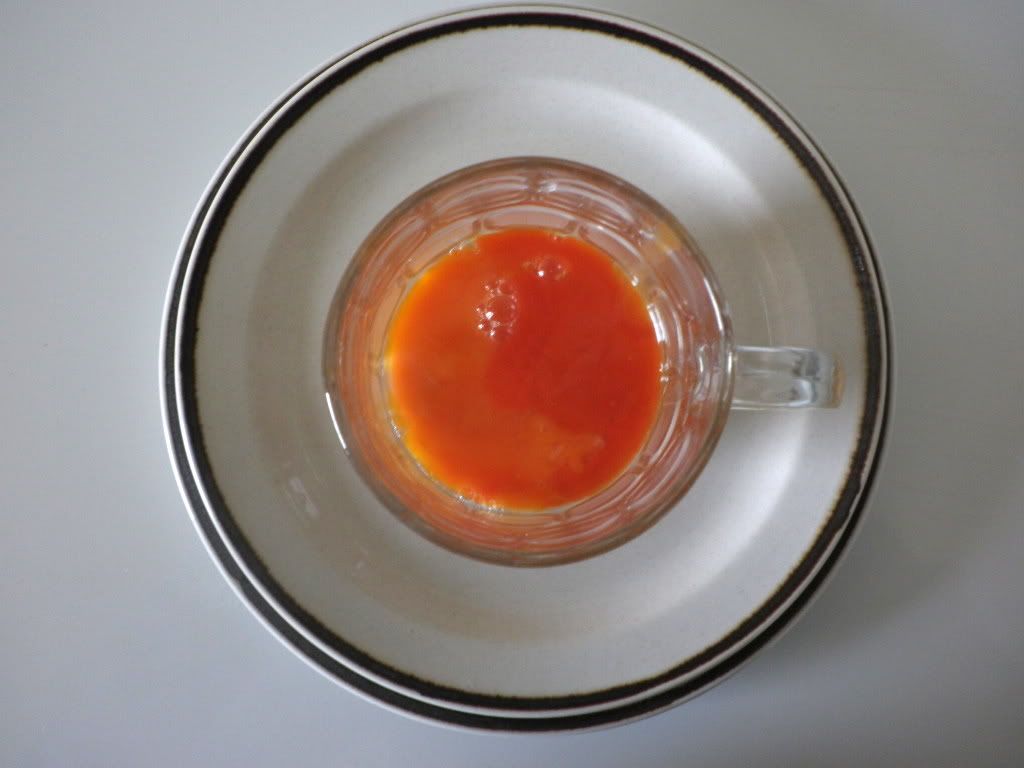 Penguin eggs ready for omelette making
Penguin eggs ready for omelette makingThank you clever sausages. As someone who lives in London I love hearing about far off, sparsely populated places. I think the word toot would have a different meaning over there; much weightier, more expensive, it might even be a redundant term . . . no! I retract that last statement *shudder*.
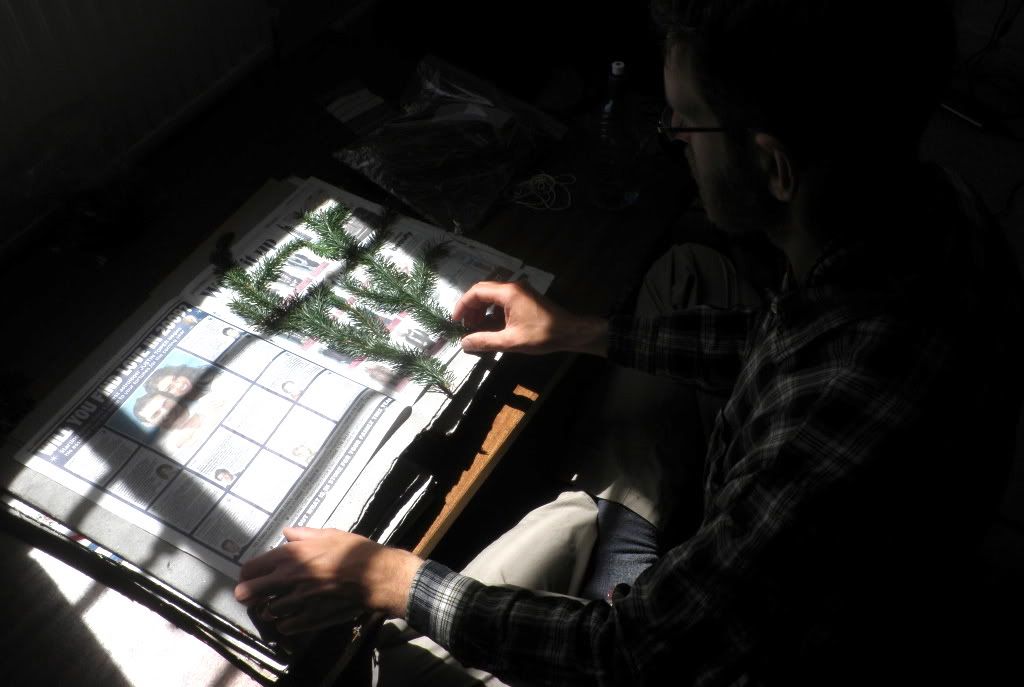 Botanist at work, pressing a (cultivated) Sitka Spruce specimen.
Botanist at work, pressing a (cultivated) Sitka Spruce specimen.
This is great! The pitchfork and the story about the black fleece are amazing. I hope you don't mind but I've tweeted about it for EB. My mum is outside in the hall and she just sang "cat pee trousers, shitty shitty cat pee". Now she's doing an operatic version. Maybe I'll go the Falklands.
ReplyDeleteIt's you Guy! I thought it was some nut, you did sound like a bit of a nut. I'm really enjoying Eye-ball. In fact I'm going to pop it on my links list now.
ReplyDeleteHope you're well.
such a beautiful pictures!!
ReplyDeleteGreat photos!
ReplyDelete